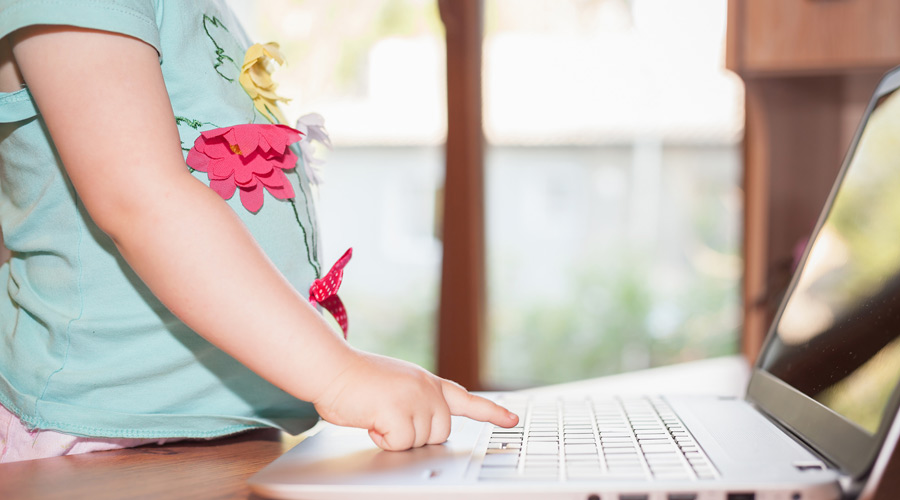Children who have been introduced to the internet because of virtual classes are also exposed to online abuse and exploitation, child rights experts said at a webinar on online safety for children.
Parents have no option but to give devices to their children. But at least once a day, they must run a check on the system to understand what the child is doing on the device, said a panelist.
The webinar was organised by the West Bengal Commission for Protection of Child Rights, in collaboration with Unicef, at a time when children are dependent on devices to be in touch with school and education.
“There is no option for children but to use the internet. Guardians are having to give their children smartphones. Earlier, they would tell them not to overuse the phone, the laptop or the internet,” said Ananya Chatterjee Chakraborti, the chairperson of the state commission for protection of child rights.
“Because of this they can be exposed to various unwanted situations like a hacker can fake their identity… but since schools have not reopened and maybe, in future, online class or hybrid class will become part of a child’s life, it is important to know about cyber crime.”
Across homes, children are on using devices, attending classes or even extra curricular activities, since March 2020 because of the pandemic.
Commander Ashok V.M. Kumar (retd), regional director, South Asia, International Justice Mission, said that parents should touch base with the child’s device.
“You have given your child a laptop and once a day, you have to check the system... Don’t be so disconnected that you do not know what the child is doing,” he said.
The-anti human trafficking expert said that one should regularly trace the home Wi-Fi. “We get the bill but hardly anyone asks for the data break-up to check the consumption pattern,” he told Metro later.
He said that parents need to check in which periods of the day the consumption is high. That should throw up an alert because “crime apps consume a significant amount of data”.
The consumption of data can be an alert and then the parent can ask for the details of the sites visited from the service provider, he said.
His advice to children during was to reduce their speed on the internet, especially when they are new to this world, and reach out for help if they feel trapped in any way.
The panelists said that while the internet is useful because children can study, it is also a double-edged sword.
“Currently, excessive internet usage and access has gone up because of which the child is exposed to abuse and exploitation,” said Paramita Neogi, child protection specialist, Unicef, West Bengal.
“Online violence is facilitating offline violence because it starts online and pushes the child to contact the perpetrator and then leads to violence offline,” she said.
The session was moderated by Mahuya Santra, consulting editor of the state commission for protection of child rights.











